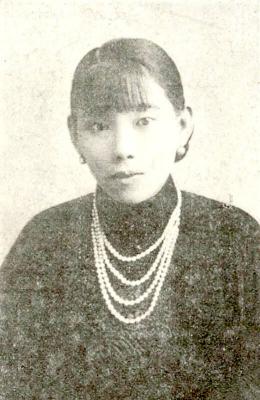If ever the virtues of the key texts of Western children’s literature should be questioned, then the story of Natascha Kampusch could be called upon as evidence. Kampusch’s only reliable companions during her long, cruel incarceration in a cellar were books — Robinson Crusoe, Treasure Island, Tom Sawyer, The Jungle Book and Alice in Wonderland were all brought to her by her captor.
“The most important means I had at my disposal for combating boredom and for keeping me from going crazy was books,” she explains in her memoir of imprisonment, 3,096 Days.
Once Kampusch had finally burst free, beaten and half-starved — after eight years of unseen sunsets and sunrises, she had become something of a butterfly when it came to self-expression. Her autobiography is testament to the power of the imagination in the face of a most terrifying predicament. While some commentators have seen Kampusch as Little Red Riding Hood, going missing in her scarlet jacket on her first solo walk to school and then held at the mercy of a man named Wolfgang, her memoir shows her to be more of a Crusoe, a resourceful soul cast adrift on an island of madness. Like Defoe’s hero, although often in fear and pain, she is constantly planning ahead.
Early on in the cellar, she remembers a wartime story about women who had avoided rape and so puts lemon peel on her skin to fake an infectious disease.
Kampusch’s grim tale would be compelling whatever the skill of the writer, but her memoir manages to be both a brave attempt to get across a message and a sad song about the bleakness of many lives.
She calmly recounts not just the tricks of the sadistic kidnapper, such as his pretence that he was the nicest member of a more frightening gang waiting off-stage, but also gives her reader a taste of the nightmarish fantasies that stalked her own mind.
Subjected to violence, starvation, molestation and sensory deprivation, Kampusch describes how she adapted “intuitively” to new “customs,” just as if in a foreign country.
Before her capture, this needy little girl, who had once yearned to be an actress, had been deeply struck by a series of television reports about young girls who had gone missing in her region of Austria. So her story touches on a hideous contradiction. Child kidnapping, we know, is rare and yet it happened to Kampusch exactly as she had feared it would.
Her anger is reserved for those who were shocked by her need to talk about her torturer. Of course he was important to her, she argues. And he was not a monster, just a sick man.
Society, she concludes, however, needs its beasts. “It needs the images of cellar dungeons so as not to have to see the many homes in which violence rears its conformist, bourgeois head.”

Many people noticed the flood of pro-China propaganda across a number of venues in recent weeks that looks like a coordinated assault on US Taiwan policy. It does look like an effort intended to influence the US before the meeting between US President Donald Trump and Chinese dictator Xi Jinping (習近平) over the weekend. Jennifer Kavanagh’s piece in the New York Times in September appears to be the opening strike of the current campaign. She followed up last week in the Lowy Interpreter, blaming the US for causing the PRC to escalate in the Philippines and Taiwan, saying that as

US President Donald Trump may have hoped for an impromptu talk with his old friend Kim Jong-un during a recent trip to Asia, but analysts say the increasingly emboldened North Korean despot had few good reasons to join the photo-op. Trump sent repeated overtures to Kim during his barnstorming tour of Asia, saying he was “100 percent” open to a meeting and even bucking decades of US policy by conceding that North Korea was “sort of a nuclear power.” But Pyongyang kept mum on the invitation, instead firing off missiles and sending its foreign minister to Russia and Belarus, with whom it

The Chinese Communist Party (CCP) has a dystopian, radical and dangerous conception of itself. Few are aware of this very fundamental difference between how they view power and how the rest of the world does. Even those of us who have lived in China sometimes fall back into the trap of viewing it through the lens of the power relationships common throughout the rest of the world, instead of understanding the CCP as it conceives of itself. Broadly speaking, the concepts of the people, race, culture, civilization, nation, government and religion are separate, though often overlapping and intertwined. A government

Nov. 3 to Nov. 9 In 1925, 18-year-old Huang Chin-chuan (黃金川) penned the following words: “When will the day of women’s equal rights arrive, so that my talents won’t drift away in the eastern stream?” These were the closing lines to her poem “Female Student” (女學生), which expressed her unwillingness to be confined to traditional female roles and her desire to study and explore the world. Born to a wealthy family on Nov. 5, 1907, Huang was able to study in Japan — a rare privilege for women in her time — and even made a name for herself in the